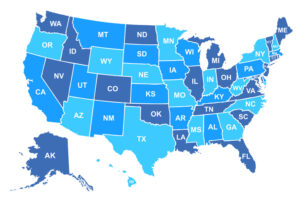Step-by-Step: Congressional Proposals Could Help Unlock Information Key to Curbing U.S. Health Care Spending

In recent years, outpatient care has contributed considerably to growth in U.S. health care spending. Efforts to curb outpatient spending have been stymied by fundamental problems connecting data on sites of care, providers, and specific charges, but a bill that recently passed the U.S. House of Representatives could provide new information necessary to craft reforms and slow spending growth.







